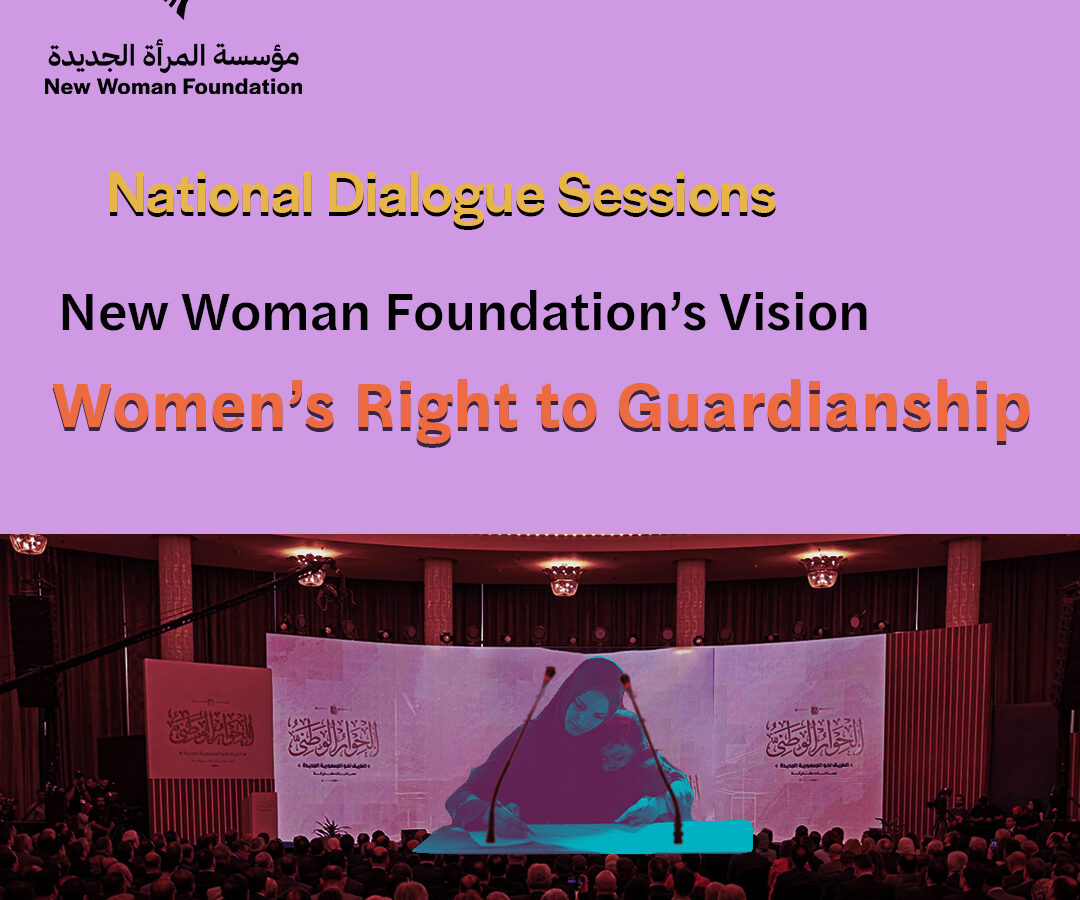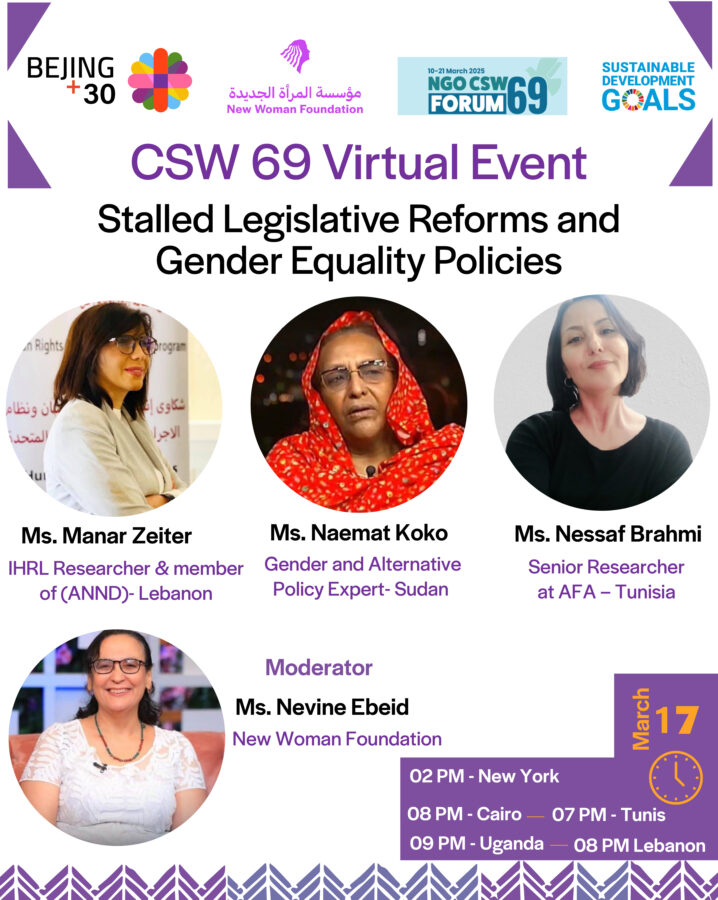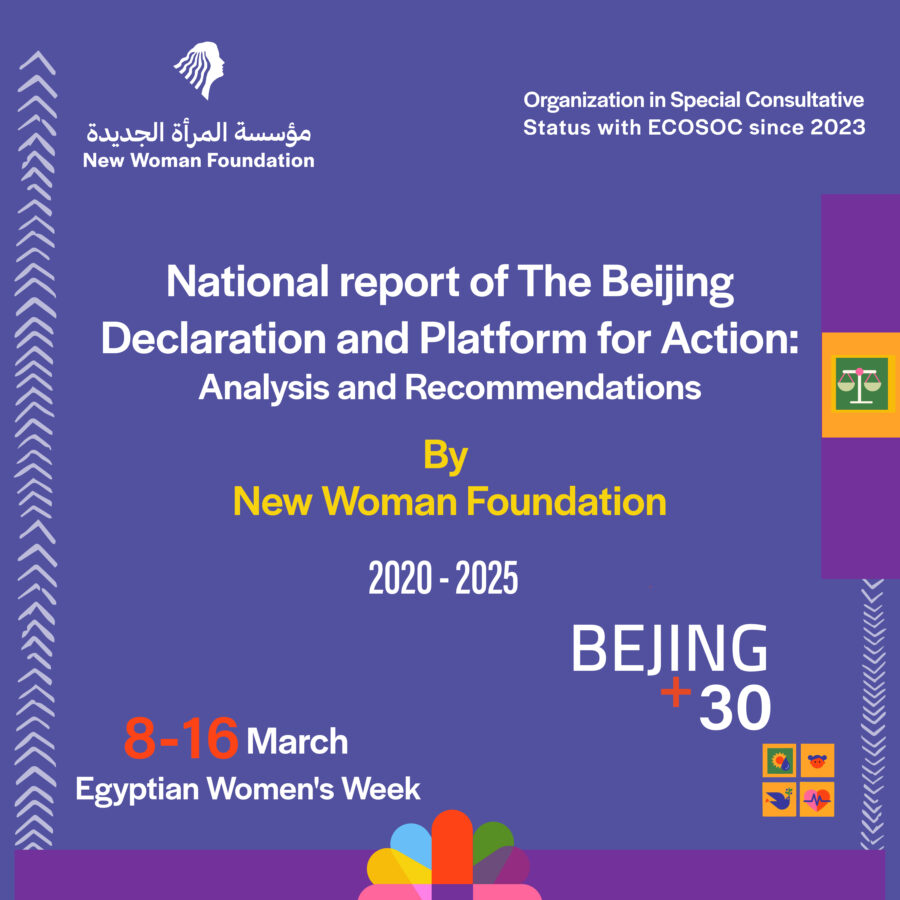- Contact Us
- 0020233382706
- nwrc@nwrcegypt.org
National Dialogue Sessions New Woman Foundation’s Vision about Women’s Right to Guardianship

National Dialogue Sessions The vision of New Woman Foundation from the Social Justice Committee
May 30, 2023
National Dialogue Sessions New Woman Foundation’s Vision about Discrimination Issue
June 4, 2023The Egyptian law has dealt with guardianship as an inherent right of males, so the law considered man (the husband) to be the sole responsible for decision-making in regard to the wife and children as the (head of the family) and therefore the natural guardian of the children, and therefore the mother is deprived of any rights related to joint decision-making regarding the children regardless the marital status and whether it is stable or not.
So the mother was deprived of her right to get a birth certificate for the child without resorting to submit a report to the police station and take what is known as the decision by which she can get a birth certificate, in the case that the father refuses to issue a birth certificate. She is also deprived of dealing with educational institutions except by resorting to the court to get educational guardianship after proving the father’s intransigence or his absence, and after the children’s examination by the judge, in addition to depriving of dealing with banks and other necessary daily decisions that form the details of the daily life of the children and the mother together.
Several years ago the civil society has raised the issue of guardianship as one of the priorities of personal status issues, from which millions of women and children suffer because of deficiency and legal discrimination that deprives mothers of any form of guardianship and the equal right to make decisions related to children, whether the father is alive or after his death.
It is always necessary for women to resort to the courts to obtain their right to take the necessary decisions concerning themselves and their children, no matter how obvious or very important they are, such as applying to schools or performing surgery for a child.
In case of the death of the father, the law gives obligatory custody to the mother, which guarantees daily care. However, it gives priority to the grandfather in guardianship over money during his lifetime, taking precedence over the mother, in violation of the Egyptian constitution, which stipulates gender equality.
Therefore, we need new legislation that regulates matters of guardianship over money and is in line with the constitution of 2014 and its amendments of 2019, a law that takes into account social development and the responsibility that the mother bears in full in terms of care, education and protection at a time when almost everyone abandons the family, and so depriving her of the ability to make fateful decisions for her children becomes a psychological violence that the mother experiences daily.
The guardianship law must protect the best interest of the child, where custody and guardianship are combined in the hands of one person and under the supervision of state institutions that must be represented by specialized councils and trained persons to deal with children and mothers, not just legal representatives of the Ministry of Justice.
The Egyptian constitution stipulates gender equality, and equality within the family in decision-making in regard to children is part of Egypt’s international obligations stipulated in the Convention on the Elimination of All Forms of Discrimination against Women (CEDAW) and the Convention on the Rights of the Child. Therefore, it is the time to change the legislations related to guardianship over money and life in accordance with the Egyptian constitution and international mechanisms.
Egypt must catch up with countries that have changed guardianship laws, the latest of which is Saudi Arabia, which amended the law four years ago to become guardianship for the father and mother for underage children.



